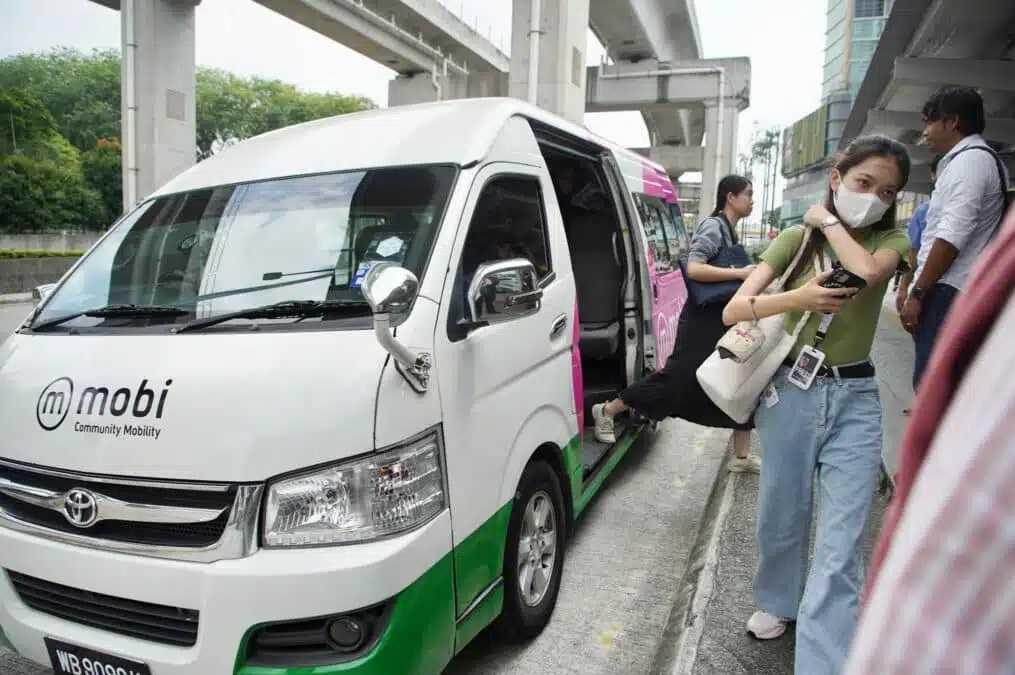Selangor's DRT, 'ground-breaking technology' or nothing new?
The demand-responsive transit service currently mired in allegations of cronyism has already been available for some time.
Just In
The demand-responsive transit (DRT) service that the Selangor government plans to introduce appears to be nothing new, despite claims of its "ground-breaking" technology by the company now battling allegations of cronyism involving a minister.
Transportation experts say that the DRT system was in fact already introduced in the country through private initiatives.
DRT is a form of shared transport for people where vehicles alter their routes for each journey to keep up with passengers' demand.
Unlike bus services which follow fixed schedules and routes, DRT is based on user demand.
The Selangor government had planned to introduce the system in Rawang using DRT vans, following pilot projects implemented in Puchong, Ampang and Gombak.
The initiative, however, became mired in controversy after two companies – Asia Mobility Technologies Sdn Bhd and Badanbas Sdn Bhd – were appointed to operate the services without going through an open tender process.
At the centre of the controversy is the fact that Asia Mobility is helmed by Ramachandran Muniandy, the husband of Youth and Sports Minister Hannah Yeoh, a rising star in DAP who once served as the Selangor state assembly speaker.
In its defence, Asia Mobility described the DRT as "ground-breaking technology" which would enable ride-sharing services based on "intelligent, machine-learning algorithms to automate fleet dispatch and optimise vehicle routing".
A transportation expert however said that such systems were nothing new.
Munzilah Md Rohani of Universiti Tun Hussein Onn Malaysia (UHTM) cited the Kumpool service as an example.
"It's not new. Vehicle sharing or 'ride-sharing' already exists in the Kumpool application. It is managed by a company in Johor although the system is operated from the Klang Valley," said Munzilah from UHTM's Smart Driving Research Center.
She said a similar system had already been used by students in some campuses, albeit informally.
"Students create a group on Telegram to share vehicles to take them to their classes," she told MalaysiaNow.
 Besides the Klang Valley, Kumpool also covers Tebrau, Genting Highlands and Bayan Lepas.
Besides the Klang Valley, Kumpool also covers Tebrau, Genting Highlands and Bayan Lepas.
Munzilah said a survey had found that people were reluctant to use public transport due to its limited routes.
"Buses, for example, cannot enter residential neighbourhoods. DRT connects residential areas to bus stations or other public transport networks."
Transport expert Rosli Azad Khan agreed that the DRT was nothing new.
He said it had long been used in the US, Europe and Japan, and was commonly known as "community transport".
"This is no different from the existing e-hailing app widely used for private cars used as taxis, with multiple stops or destinations offered by the app," said Rosli.
The only difference with Selangor's DRT, he said, was that the vehicles used by Asia Mobility were large enough to carry more passengers.
He said this enabled first- to last-mile connectivity for MRT, LRT and KTM Komuter users, unlike the RapidKL feeder buses which still struggle with punctuality issues.
E-hailing services are operated by companies such as Grab, Maxim and In Driver.
Rosli said a good initiative such as the DRT should not be limited to one or two operators, given Selangor's size and population density, in addition to its high-demand corridors.
"There are significant gaps in first- and last-mile services. This is a critical failure of the mass transit system that the state and local governments have not addressed.
"Many expected the Selangor Mobility initiative to tackle this issue, but it seems that it does not," Rosli added.
Previously, Gombak Setia assemblyman Hilman Idham too said that the DRT service was nothing new, and that various e-hailing companies with good track records were also qualified to operate the service.
Subscribe to our newsletter
To be updated with all the latest news and analyses daily.
